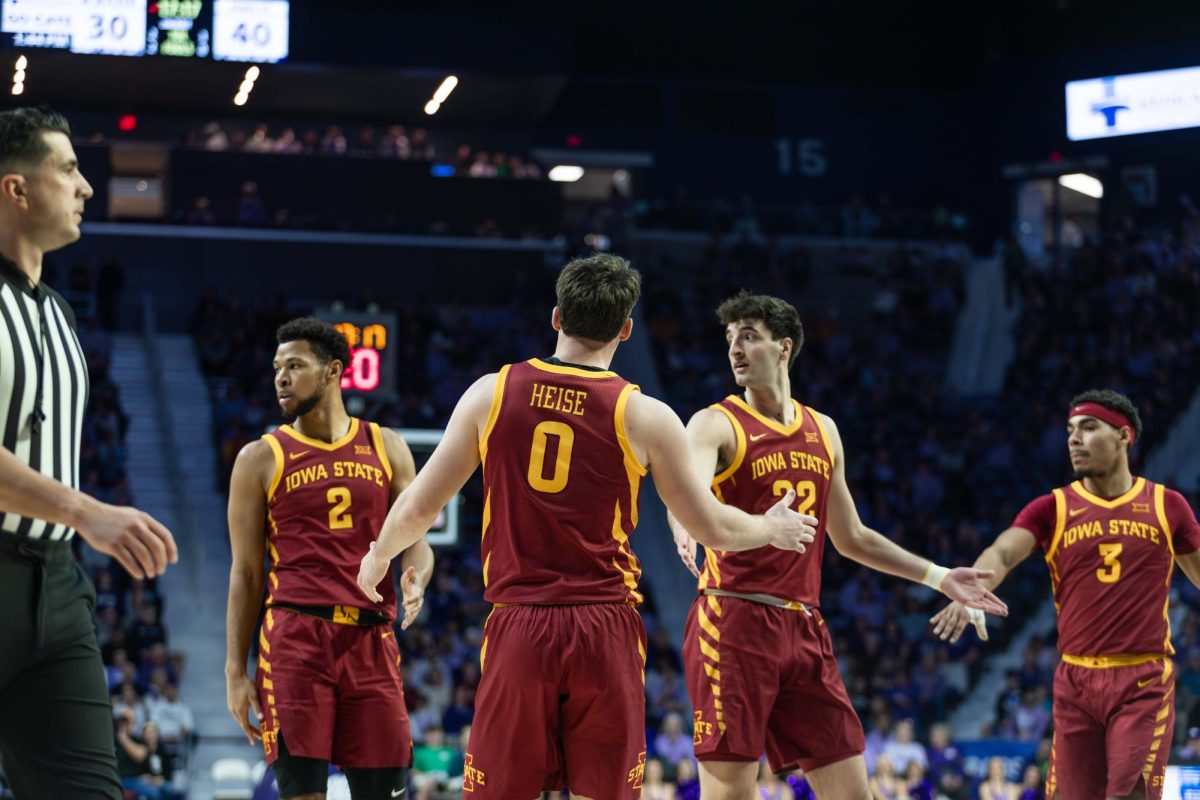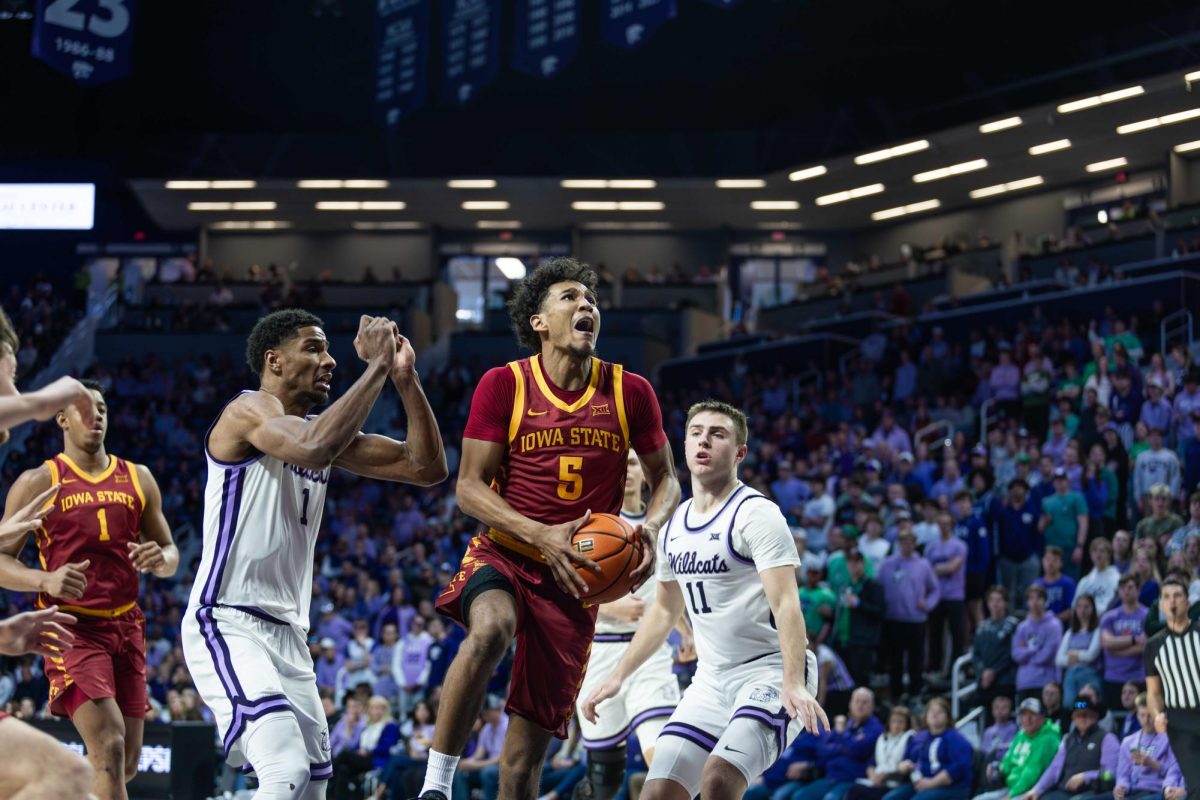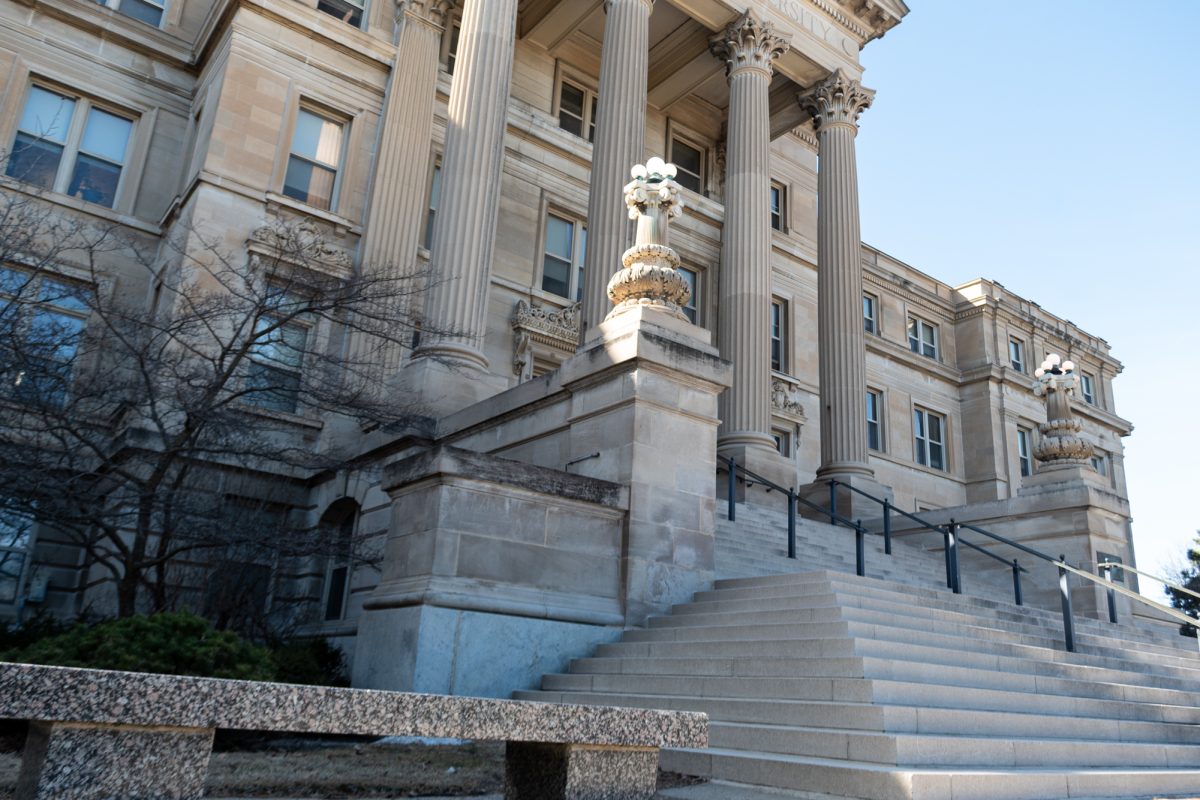Lobbying for students at Legislature, decreasing apathy at top of GSB agenda
August 25, 2003
A new round of challenges, including potential tuition increases and student apathy, face the Government of the Student Body this semester, although a major budget crisis that threatened the organization has been averted.
Last year’s GSB executives concentrated on diversity, budget cuts, tuition increases, ownership of the Memorial Union and student safety. This year’s administration will emphasize efforts to create more and better entertainment venues for students under the age of 21, more dining options on campus, a strong student lobbying group at the State House and a better relationship and student voice within the Ames City Council, said Vice President Ben Albright.
“I feel [these issues] are important to students, and they need to be focused on. These are things we’ve heard during our campaign from students that they say they would like to see get done,” said Albright, senior in agricultural studies.
GSB has already initiated talks with the Director of Campus Dinning Jon Lewis about remodeling the Hub to provide better on-campus dining, he said.
Lewis will also attend the first GSB meeting to discuss his ideas with the senate.
President Mike Banasiak and Albright have also started on their other campaign promise: Improving entertainment for students under 21, by considering the creation of a new fall events series. Legislation for the fall event series would bring live music and comedians to the ISU campus.
The senate is also gearing up for the year with its own focuses.
Tony Luken, GSB speaker of the senate, said he will personally push hard this year at getting a better student lobbying group at the Iowa Statehouse to work for legislation that will slow tuition increases.
Luken said he hopes effective lobbying will get students a few key votes in this year’s Legislature.
“We want to be able to emphasize our priorities in committee,” he said.
Luken said he has been working to bring together a student lobbying co-op between the regent universities, called the United Students of Iowa, an effort the GSB Government Relations Committee will also be working on this year.
“People say it’s one more lobbyist in a group of hundreds, but there’s a group being forgotten and that’s students having to pay back-to-back double digit tuition increases,” he said.
Adam Haberkorn, freshman in sociology, said he’s tired of increased tuition, which is causing financial strains for him. Haberkorn said he would like to see GSB become more involved with lobbying this year.
“I think [the co-op] would be more productive than just having Iowa State up there. They’d have a better chance of making a change by teaming together,” he said.
In the past, Luken said GSB hadn’t done enough by just sending executives up for a college day at the state house. He said he believes GSB and ISU students need to be represented more than just one day out of the year, through lobbyists who can be at the capital on a regular basis.
One challenge GSB may face this year is student apathy and gaining GSB visibility on campus.
“A lot of the work we do goes unnoticed, and there’s a lot of student apathy. We’re going to focus on that during our cabinet retreat,” Albright said. “We just need to make ourselves more visible.”
Luken said senators have been too passive in the past, and it will be a challenge this year to make sure that does not happen again. He said he plans to address the issue by attending more house meetings and promoting activity within the senate.
Lauren Damme, junior in marketing, left GSB last year because of this problem. She said GSB does not have a high profile on campus because few are aware of what GSB does for them.
“Students on campus don’t feel GSB touches their lives or is involved with their day-to-day campus life,” Damme said.
Stephanie Tang, sophomore in marketing, said she believes there’s too much student apathy, but she and Damme think there are ways GSB can change that.
“GSB needs to make students aware of the way they affect them and why they are on campus,” Damme said.
Tang said after a GSB meeting she attended last year, her impression of GSB is that they do not take their jobs seriously, but they take themselves seriously.
Banasiak admitted this has been a problem for GSB.
“In the past, GSB has been too self-involved,” he said. “It’s impossible to find out and accomplish everything every student wants. What we have to do is find initiatives that will positively affect as many students as possible and communicate and interact with as many students as we can, because when we do that, those issues become more clear.”
Banasiak said this will be GSB’s most important issue this year.
GSB has managed to solve the budget crisis that caused them to cut funding to student organizations for this year. A decision made last year by the Board of Regents over how student fees are collected resulted in GSB facing a $175,000 debt.
Through a series of allocation legislation last year, GSB managed to cut that deficit down to $80,000 by the end of the spring semester of 2003. Over the summer, GSB used a kickback from student organizations’ failures to use all GSB allocated student fee money to pay off the debt in full.
GSB Finance Director David Boike said there was money left over from the kickback to put in the Special Projects Account to help with capital expenditures.
Boike, senior in electrical engineering, said the budget this year is strained because of the cuts that needed to be made last year in order to take care of the debt.
“Things are tight, but we’ll be OK,” he said. “For some groups, it’s a lot less than they would have liked to have, but we came close [to] making sure every group had enough money to do what they need to and survive.”
GSB will have a budget of $149,772 this year, compared to last year’s $143,232.
The reason for the increase is to accommodate a raise in GSB member’s salaries, because the values are based on room and board and tuition rates, according to GSB by-laws.
The first GSB meeting of the semester will be held at 7 p.m. Wednesday night in the Campanile room of the Memorial Union.






